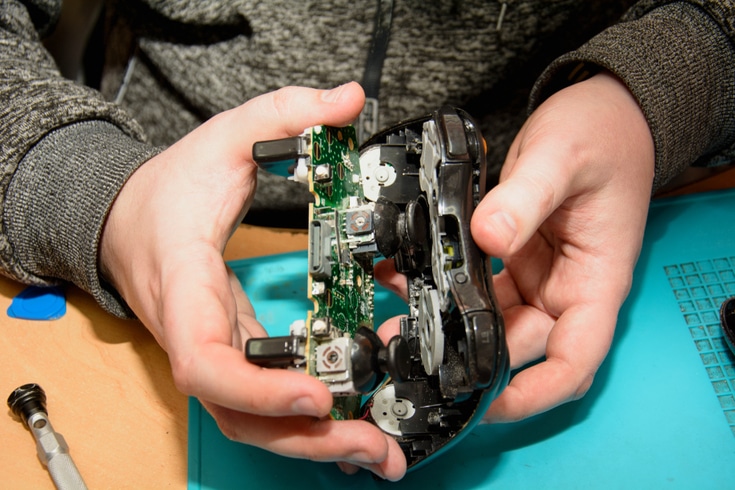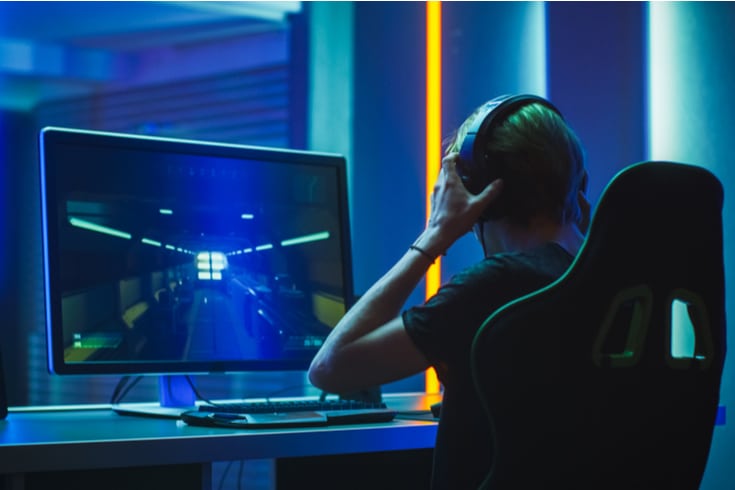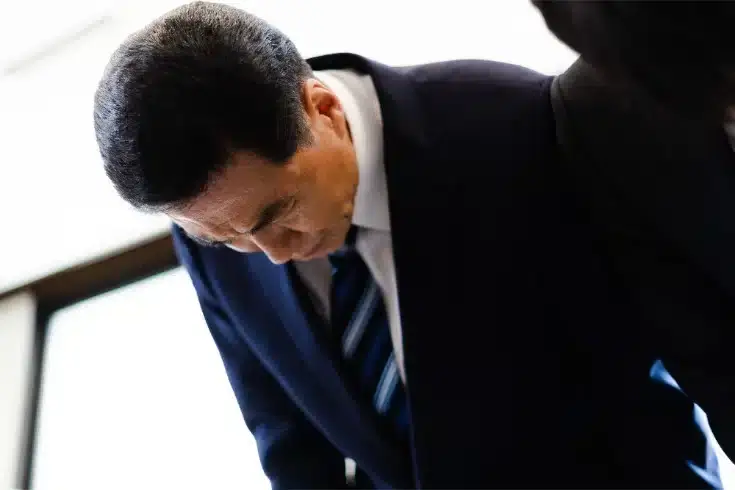Match-fixing, Substitution, Cheating... Explaining Misconduct and Lawsuit Cases Related to eSports Overseas

Professional gaming, now ranked among children’s dream jobs, is gaining popularity. Particularly overseas, e-sports have been popular from a relatively early stage. In recent years, the popularity of e-sports has been on the rise in Japan as well, with numerous tournaments being held.
With the rise in popularity of e-sports, there has been an increase in the number of tournaments with large prize money.
On the other hand, as the number of competitors increases, so does the number of cases of misconduct. In some cases, these incidents have even led to lawsuits.
While most cases of e-sports-related misconduct and litigation occur overseas, it is possible that they could also occur in Japan in the future. Therefore, we will introduce the types of misconduct and litigation cases that have occurred overseas for those involved in e-sports, including companies and players.
https://monolith.law/corporate/esport-newcomer-legal[ja]
Overseas Misconduct and Litigation Cases Related to eSports
Let’s discuss some actual cases.
The Collusion Issue that Occurred in 2012
In the summer of 2012, during the MLG Summer Championship held in the United States, it was revealed that collusion had taken place between Curse NA and Team Dignitas, who competed in the finals. This became a significant issue.
The collusion involved an agreement that regardless of which team won, the total prize money won by both teams would be combined and evenly split between them.
As a result of their collusion, both teams were disqualified according to the tournament rules. Neither team was awarded the prize money.
Unfair Conduct Issue that Occurred in 2012 (2012年)
In 2012, an incident of unfair conduct occurred during a League of Legends (LoL) tournament.
During a match between Azubu Frost and TSM, Woong, a player from Azubu Frost, cheated by peeking at the large monitor installed in the venue to gather information about the opposing team.
As a result of Woong’s unfair conduct, Azubu Frost was fined $30,000.
The Match-Fixing Scandal in South Korea in 2015 (2015年)
In eSports, the outcome of games is crucial. Therefore, there are instances where money exchanges hands behind the scenes, and players intentionally lose games, among other forms of match-fixing.
A significant incident was the match-fixing scandal that occurred in South Korea in 2015 (2015年) involving the game “StarCraft 2”.
In South Korea, it was revealed that top eSports players were involved in match-fixing. This led to the arrest of a dozen individuals involved in the scandal.

Issue of Cheating Tool Use in 2018
At the ZOWIE eXTREMESLAND CS:GO ASIA 2018 held on October 19, 2018, an issue of cheating tool use occurred.
The use of the cheating tool took place during a match between OpTic India and Revolution.
The anti-cheating feature implemented by the tournament organizers was triggered, detecting some form of cheating from the PC of forsaken, a player from OpTic India.
When tournament officials attempted to inspect forsaken’s PC, he displayed a resistant attitude and deleted the cheating tool from his PC while refusing the inspection.
Ultimately, the tournament officials were able to restore the deleted cheating tool and confirmed its use.
As a result, forsaken was disqualified from the ZOWIE eXTREMESLAND CS:GO ASIA 2018 and received a ban from participating for the next five years.
Due to the revelation of forsaken’s use of the cheating tool, OpTic India’s operations became difficult, forcing the team to disband.
Match-Fixing Incident in Australia in 2019 (2019年)
Following the previously mentioned incident in Korea, a match-fixing issue also occurred in Australia in 2019.
In Australia, the match-fixing issue occurred in the particularly popular first-person shooter (FPS) e-sports title, Counter-Strike: Global Offensive (CSGO).
For reference, FPS stands for First-Person Shooter, a genre of games where players move within the game from the personality’s perspective, using tools and weapons to battle against other players.
In this incident, it is believed that six individuals were involved. These six people had pre-arranged the outcome of the game and then played it out.

Litigation Cases Regarding Athlete’s Working Conditions
Turner Tenney, known as a player for popular game titles such as FORTNITE (Tfue), has filed a lawsuit against his team, FaZe Clan.
Turner Tenney claimed that the contract he has with FaZe Clan is an illegal contract that violates the Talent Agency Act of California. He demanded the termination of the contract with FaZe Clan, payment of fair remuneration, and payment of damages.
In the lawsuit, Turner Tenney argued that of the revenue earned from videos published on Twitch, YouTube, and social media, 20% was Turner Tenney’s share and 80% was FaZe Clan’s share. He also pointed out that for appearance fees for tours and events, 50% was Turner Tenney’s share and 50% was FaZe Clan’s share, and that FaZe Clan’s share was too large.
Furthermore, it was pointed out that the contract Turner Tenney has with FaZe Clan includes a clause prohibiting competition, and that Turner Tenney cannot accept job requests directly as an individual.
Turner Tenney is a well-known figure in the e-sports industry, and there was much attention on what the outcome of this lawsuit would be. However, it seems that a settlement has been reached between Turner Tenney and FaZe Clan, and the lawsuit has been resolved.
The Impersonation Issue of Athletes that Occurred in 2020
The issue occurred during the Formula E Race At Home Challenge, a race for electric vehicles known as Formula E.
Originally, professional drivers were expected to actually race in electric vehicles, but due to the COVID-19 pandemic, it became difficult to conduct races in electric vehicles. As a result, professional drivers conducted virtual races from home using simulators.
The professional driver in question was Daniel Abt. Daniel Abt allowed someone else to participate in the virtual race on his behalf, and he did not participate himself.
As a result of this impersonation issue, Daniel Abt was disqualified from the race in question, stripped of the points he had earned in the Formula E Race At Home Challenge, and ordered to donate 10,000 euros to a charity.
Furthermore, Audi imposed a severe penalty on Daniel Abt by stripping him of his qualifications as a Formula E driver, resulting in Daniel Abt losing his seat at Audi.
Issues Arise in Japan’s e-Sports Scene

Even in Japan, troubles related to e-Sports have occurred.
The team at the center of the issue is NORA-Rengo.
Concerning NORA-Rengo, allegations of unpaid wages and the owner’s private issues were exposed by those involved, causing a so-called “flaming” situation on social media.
While the owner tweeted to deny some of the allegations, he ultimately resigned.
Furthermore, there was a succession of departures by the players who belonged to the team.
Summary
We have introduced various misconduct and litigation cases related to eSports overseas.
eSports is a field that has developed in recent years, and it is not always possible to establish a solid system. There are cases where misconduct occurs.
Of course, if misconduct occurs in eSports, it will not be sustainable. Therefore, it is inevitable to impose severe penalties for misconduct to ensure fairness.
In Japan, it is expected that eSports will continue to develop in the future. Therefore, we recommend that those involved in eSports, such as companies and players, consult with a lawyer with specialized knowledge at an early stage.
Introduction to Our Firm’s Measures
Monolith Law Office is a legal office with high expertise in both IT, particularly the internet, and law.
In recent years, many companies have sponsored e-sports tournaments. However, in Japan, the legal system is not yet fully established, and there are many points to be careful about.
Our firm provides solutions related to corporate legal affairs for startups and IT companies. Details are described in the following article.





















